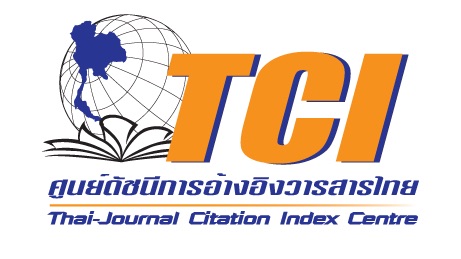กระบวนการยุติธรรมตามหลักพุทธศาสนากับแนวคิดสิทธิมนุษยชน
Keywords:
USTICE SYSTEM, HUMAN RIGHTSAbstract
การวิจัยกระบวนการยุติธรรมตามหลักพุทธศาสนากับแนวคิดสิทธิมนุษยชนศึกษาหลักธรรมอริยสัจ 4 ศีล 5 กับกติกาสากลด้านสิทธิพลเมืองและการเมืองของราชอาณาจักรไทยและราชอาณาจักรกัมพูชา ใช้ระเบียบวิธีการวิจัยแบบผสมผสานวิธีระหว่างการวิจัยเชิงคุณภาพแนว ชาติพันธุ์วรรณนากับการวิจัยเชิงปริมาณด้วยสถิติขั้นสูง เป็นการวิจัยข้ามชาติ ข้ามวัฒนธรรม โดยมีฐานคติ (Assumption) ว่า การปกครอง โดยพระมหากษัตริย์ทรงเป็นพระประมุข การเมืองแบบประชาธิปไตย โดยการเลือกตั้งโดยตรง นับถือศาสนาพุทธศาสนา จารีตประเพณี วัฒนธรรมคล้ายคลึงกัน วัตถุประสงค์เพื่อ 1. ศึกษาแนวคิดสิทธิมนุษยชนด้านกระบวนการยุติธรรมที่ปรากฏในเอกสารในอดีต ประกอบด้วย หลักการครองตนตามแนวทางพุทธศาสนา ซึ่งหมายถึงอริยสัจ 4 และศีล 5 ศึกษาการนำแนวคิดสิทธิมนุษยชนมาผนวกไว้ในกระบวนการยุติธรรม การนำแนวคิดสิทธิมนุษยชนมาสนับสนุนการให้บริการ ด้านอำนวยความยุติธรรมในสังคมปัจจุบัน 2. ศึกษาแนวคิดสิทธิมนุษยชนที่สัมพันธ์กับกระบวนการยุติธรรมในคำสอนพุทธศาสนาในราชอาณาจักรไทยกับราชอาณาจักรกัมพูชาและแนวคิดสิทธิมนุษยชนในกติกาสากลด้านสิทธิพลเมืองและการเมืองซึ่งทั้งสองประเทศเป็นภาคี 3. เพื่อวิเคราะห์องค์ประกอบกระบวนการยุติธรรมที่สัมพันธ์กับแนวคิดสิทธิมนุษยชนของพุทธศาสนิกชนในราชอาณาจักรไทยและกัมพูชาและจัดทำข้อเสนอเชิงนโยบายในการพัฒนากระบวนการยุติธรรมในราชอาณาจักรไทย ผลการวิจัยพบว่า การวิเคราะห์องค์ประกอบภาพรวมที่สัมพันธ์กันอย่างมีนัยสำคัญทางสถิติ ที่ .000 และได้จัดทำข้อเสนอเชิงนโยบาย ดังนี้ 1) ความสัมพันธ์ระหว่างหลักอริยสัจ 4 และสิทธิพลเมืองและสิทธิทางการเมือง 2) ความสัมพันธ์ระหว่างข้อธรรม ศีล 5 ในการปรับเปลี่ยนพฤติกรรมและทัศนคติของตำรวจต่อเสรีภาพของประชาชน 3) ความสัมพันธ์ระหว่างข้อธรรมหลักพุทธศาสนาขั้นพื้นฐานกับ การดำรงชีวิตตามสิทธิทางการเมืองทั่วไป 4) ความสัมพันธ์ระหว่างข้อธรรมหลักอริยมรรคกับบทบาทหน้าที่คณะกรรมการสิทธิมนุษยชนแห่งชาติ 5) ความสัมพันธ์ระหว่างข้อธรรมหลักไตรลักษณ์กับการดำรงชีวิตประจำวัน 6) ความสัมพันธ์ระหว่างข้อธรรมหลักอริยมรรคกับ การผสมผสานการปฏิบัติหน้าที่ตำรวจกับหน่วยงานอื่น ๆ ในการปฏิบัติหน้าที่ด้านกระบวนการยุติธรรมอย่างสม่ำเสมอ ให้มีพัฒนาการด้านสิทธิมนุษยชนตามหลักการคุ้มครองและเคารพสิทธิเสรีภาพตามหลักการ สัมปยุต โดยการคัดสรรปัญหาจำเป็นจะต้องมีทั้งอนุโลมและปฎิโลมตามหลักธัมมวิจัย สอบทาน ความถูกต้องเป็นธรรมและ มีคุณค่าอย่างยิ่ง
This mixed-method research studied the Buddhist justice system and the human rights concepts based on the Four Noble Truths, the 5 Precepts, and the universal laws of civil and political rights in the Kingdom of Thailand and the Kingdom of Cambodia. The study employed the ethnographic research methodology and the qualitative research methodology with advanced statistics. This cross-cultural study was based on the assumption of the similarity of two countries in terms of democratic form of government with the King as Head of State, democratic politics by direct election, Buddhism, mores, and cultures. The objectives of this research were: 1) to study the concept of human rights in the judicial process that shown in historical documents in terms of self-managing according to the Buddhist principle (the Four Noble Truths and the 5 Precepts), the integration of the human rights concepts into the justice system, and the application of human rights concepts to support justice services in today’s society; 2) to study the concepts of human rights relating to the judicial process found in the Buddhist teaching in the Kingdom of Thailand and the Kingdom of Cambodia, and the international covenant concepts of human rights in terms of civil and political rights where the two countries are parties; and 3) to conduct a factor analysis of the judicial process relating to the human rights concepts of Buddhists in Thailand and Cambodia and to provide proposed policies to develop the judicial process in the Kingdom of Thailand. The study found that the overall result of factor analysis is statistical significant at .000. The proposed policies to develop the judicial process in Thailand are presented as following: 1) the relationship between the Four Noble Truths, the civil rights, and the political rights; 2) the relationship between the 5 precepts and the modification of police’s behaviour and attitude toward civil liberties; 3) the relationship between the basic doctrines of Buddhism and the living based on the common political rights; 4) the relationship between the Noble Eightfold Path and the roles of the National Human Rights Commission of Thailand; 5) the relationship between the Three Marks of Existence and a daily living; and 6) the relationship between the Noble Eightfold Path and the incorporation of police duties with other agencies to regularly perform their judicial functions. It is also suggested that the human rights should be developed in accordance with the principles of protection and respect for civil liberties through the concept of Sampayutta. In addition, a problem selection should depend on both of Anuloma and Patiloma according to the principle of Dhamma Vicaya to validate and justify.
References
ฉันทนา ไกรสถิต. (2543). การคุ้มครองสิทธิมนุษยชนภายใต้กติการะหว่างประเทศว่าด้วยสิทธิพลเมืองและสิทธิทางการเมืองของประเทศไทย. กรุงเทพมหานคร: คณะนิติศาสตร์ มหาวิทยาลัยธรรมศาสตร์.
นริสา วุฒิปัญญาเลิศ. (2545). กลไกการคุ้มครองสิทธิมนุษยชนในอาเซียน. กรุงเทพมหานคร: มหาวิทยาลัยรามคำแหง.
สมเกียรติ อัศวิษณุ. (2557). ตำรวจของประชาชนเป็นไปได้หรือ. กรุงเทพมหานคร: โรงพิมพ์ธุรกิจบัณฑิตย์.
สุกัลยา พุทธหุน. (2552). การบริหารกระบวนการยุติธรรม. กรุงเทพมหานคร: ศูนย์เอกสารทางวิชาการ คณะรัฐศาสตร์ มหาวิทยาลัยรามคำแหง.
เสน่ห์ จามริก. (2547). สิทธิชุมชนในมุมมองระดับโลก. กรุงเทพมหานคร: สำนักงานคณะกรรมการสิทธิมนุษยชนแห่งชาติ.
อมรา พงศาพิชญ์. (2534). วัฒนธรรม ศาสนา และชาติพันธุ์ :วิเคราะห์สังคมไทยแนวมานุษยวิทยา. กรุงเทพมหานคร: สำนักพิมพ์แห่งจุฬาลงกรณ์มหาวิทยาลัย.
Downloads
Published
How to Cite
Issue
Section
License

This work is licensed under a Creative Commons Attribution-NonCommercial-NoDerivatives 4.0 International License.







